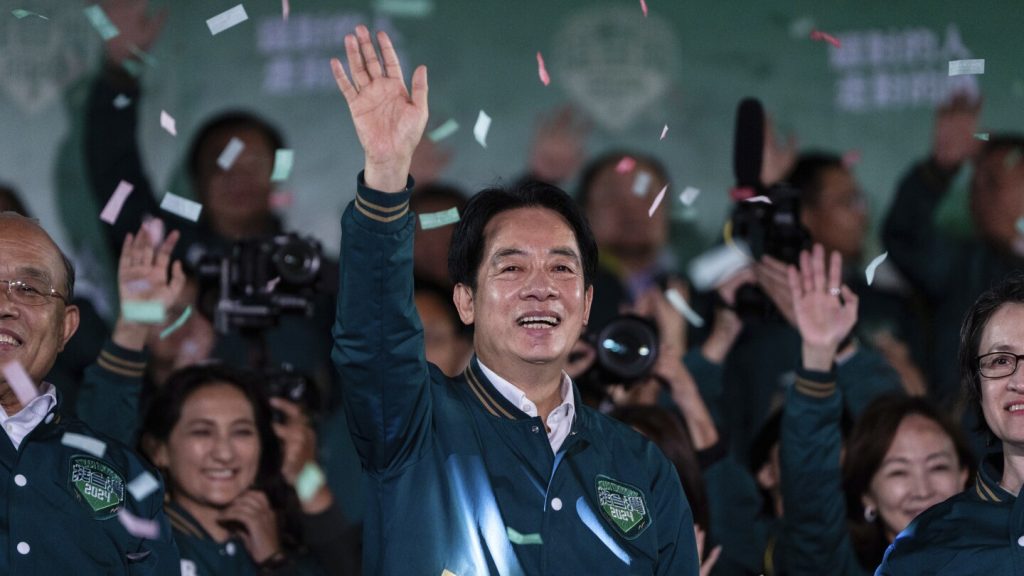The White House announced that it will send an unofficial delegation to Taiwan for the inauguration of the island’s democratically elected president, Lai Ching-te of the Democratic Progressive Party. This move is likely to upset China, which views Taiwan as part of its territory and opposes any official contact between Washington and Taipei. The delegation, which includes two former senior officials and a scholar, is intended to represent the American people and highlight Taiwan’s status as a model for democracy in the region.
Despite not having formal relations with Taiwan, the U.S. is the island’s strongest ally and is obligated under a 1979 law to help Taiwan protect itself from invasion. It is unclear how Beijing will respond to the presence of an unofficial U.S. delegation at the inauguration, but the administration is prepared for potential military pressure or coercion from China. The U.S. maintains a commitment to peaceful resolution of differences and opposes any unilateral changes to the status quo regarding Taiwan’s independence.
The U.S.-China relationship has been strained in recent years, with Taiwan becoming a focal point of tensions between the two countries. The Biden administration has engaged in intense diplomacy to prevent further escalation of conflicts and maintain open communication channels with Beijing. Although Washington does not support Taiwan independence, it backs cross-Strait dialogue as a way to resolve differences peacefully. The delegation’s visit to Taiwan is part of broader efforts to manage relations with China and prevent misunderstandings.
Following Lai’s election in January, President Biden previously sent an unofficial delegation to meet with him in Taipei, which drew criticism from Beijing. Members of Congress have also traveled to Taiwan to meet with the president-elect, and plans are underway for a congressional delegation to visit shortly after Lai’s inauguration. Beijing has reiterated its claim over Taiwan and emphasized that Taiwan is an integral part of China, a stance that has been supported by the severing of diplomatic ties with Taiwan by certain nations. Beijing has also criticized the passage of a U.S. destroyer through the Taiwan Strait, further escalating tensions in the region.
In an attempt to prevent Taiwan’s global recognition, China has stated that it will not agree to Taiwan’s participation in the World Health Assembly, an annual meeting held by the World Health Organization. This move aims to limit Taiwan’s visibility on the world stage and reinforce China’s position on Taiwan’s sovereignty. Beijing has accused the Democratic Progressive Party of pursuing a separatist stance towards Taiwan’s independence, providing what it sees as a legitimate basis for barring Taiwan from international organizations.
The bipartisan delegation sent by the White House to Taiwan includes individuals with experience in various sectors, including economics, diplomacy, and foreign relations. The delegation is a reflection of the U.S.’s commitment to supporting Taiwan’s democracy and highlighting its importance as a strategic ally in the region. Despite potential backlash from Beijing, the U.S. remains dedicated to maintaining stability in the region and engaging in dialogue with China to prevent further escalation of conflicts. The delegation’s visit to Taiwan underscores the significance of Taiwan as a democratic partner in the Indo-Pacific region.


